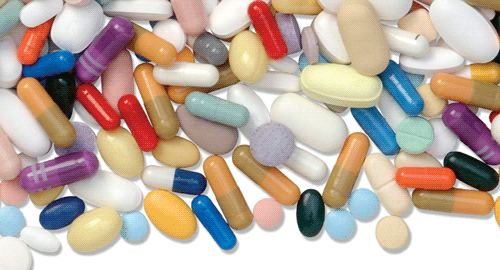 Sirukumab, an investigational human monoclonal antibody that selectively binds to the interleukin (IL) 6 cytokine, has completed a randomized, double-blind, placebo-controlled, parallel-group, Phase 3 clinical trial (SIRROUND-T) in patients with rheumatoid arthritis (RA).1
Sirukumab, an investigational human monoclonal antibody that selectively binds to the interleukin (IL) 6 cytokine, has completed a randomized, double-blind, placebo-controlled, parallel-group, Phase 3 clinical trial (SIRROUND-T) in patients with rheumatoid arthritis (RA).1
During the trial, which took place between July 25, 2012, and Jan. 12, 2016, researchers randomized adult patients (N=878) from 183 hospitals and private rheumatology clinics worldwide. Participants had active RA, four or more tender and swollen joints, and were intolerant or refractory to at least one prior anti-TNF drug. For up to 52 weeks, participants were randomly assigned (1:1:1) to receive either placebo subcutaneously every two weeks (n=294), 50 mg sirukumab subcutaneously every four weeks (n=292) or 100 mg sirukumab subcutaneously every two weeks (n=292). Patients were allowed to continue background disease-modifying anti-rheumatic drugs (DMARDs) and were stratified during randomization by methotrexate use. At baseline, 60% (n=523) of patients had previously used two or more biological DMARDs, whereas 19% (n=166) had not used a DMARD.
The primary outcome was the proportion of patients achieving at least a 20% ACR20 improvement at Week 16 in the intention-to-treat population. An additional primary outcome was a 20% or greater improvement from baseline in three of five assessments: pain via Visual Analogue Scale (VAS), Patient’s Global Assessment of Disease Activity via VAS, Physician’s Global Assessment of Disease Activity via VAS, physical function on the Health Assessment Questionnaire–Disability Index [HAQ-DI], and/or C-reactive protein concentrations. Secondary endpoints—ACR50, AC70 and ACR90 responses—were evaluated at Week 24. Also, the safety evaluation was performed on all patients who received at least one dose of study drug.
At Week 18, any placebo-treated patients who had a less than 20% improvement in swollen and tender joints were randomly assigned to either active-treatment group according to early escape criteria. At Week 24, all remaining placebo-treated patients were randomly assigned to an active-treatment group.
The ACR20 responses at Week 16 were: 24% (n=71) for placebo-treated patients, 40% (n=117) for 50 mg sirukumab every four weeks-treated patients, and 45% (n=132) for 100 mg sirukumab every two weeks-treated patients. Additionally, more patients achieved ACR20, ACR50 and ACR70 responses at Week 24 with either dosage of sirukumab compared with those who received placebo. Also, more patients treated with 100 mg sirukumab every two weeks achieved an ACR90 response by Week 24 compared with placebo (P<0.0001).
Adverse events during the 24-week, placebo-controlled period were similar across groups. The most common adverse events at Week 24 and Week 52 were injection-site reactions with erythema. Among sirukumab-treated patients, 5 deaths were reported from a cerebrovascular accident, metastatic breast cancer, myocardial infarction, pneumonia and sudden death. Only the death from pneumonia is thought to be “possibly related” to treatment.


